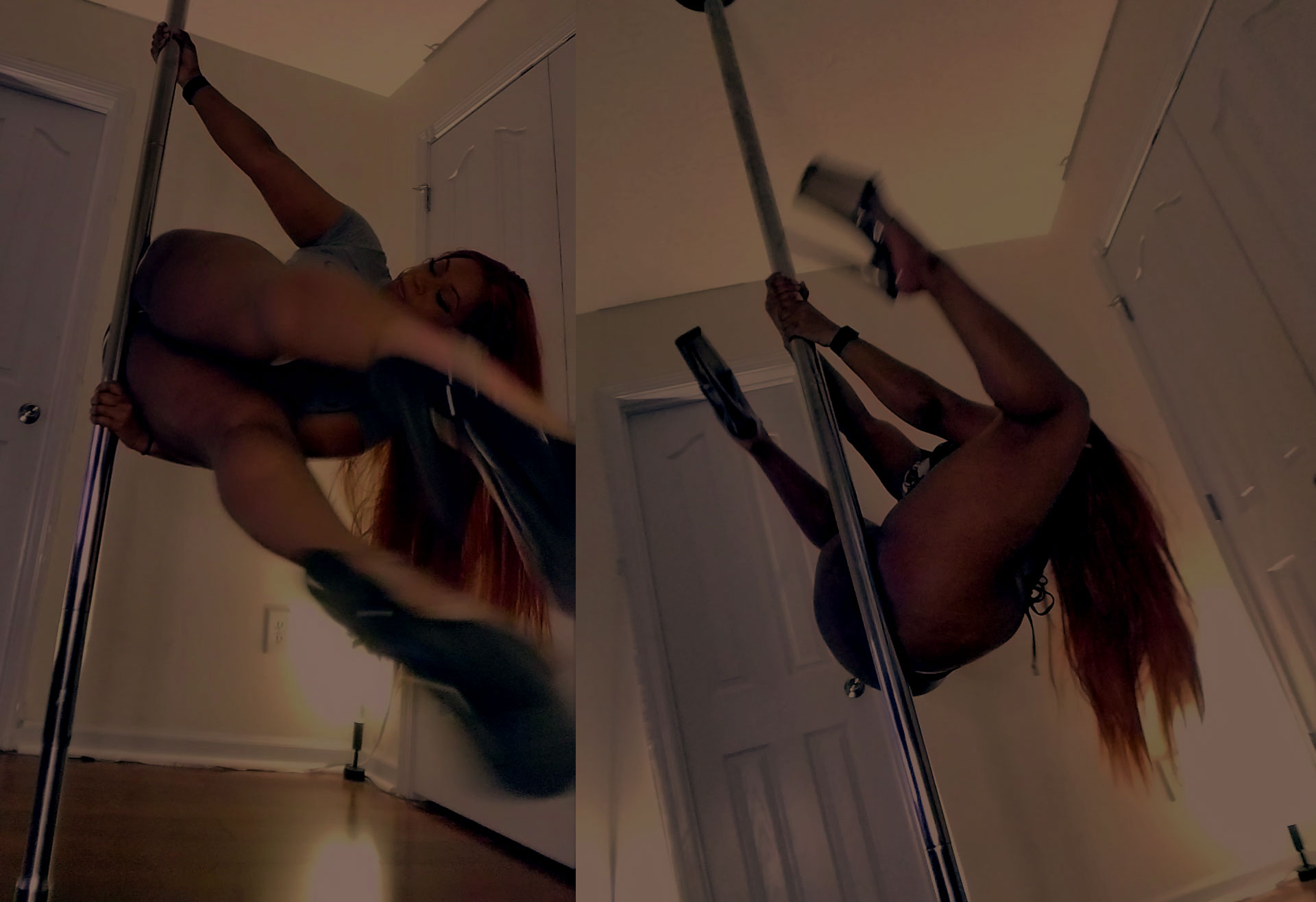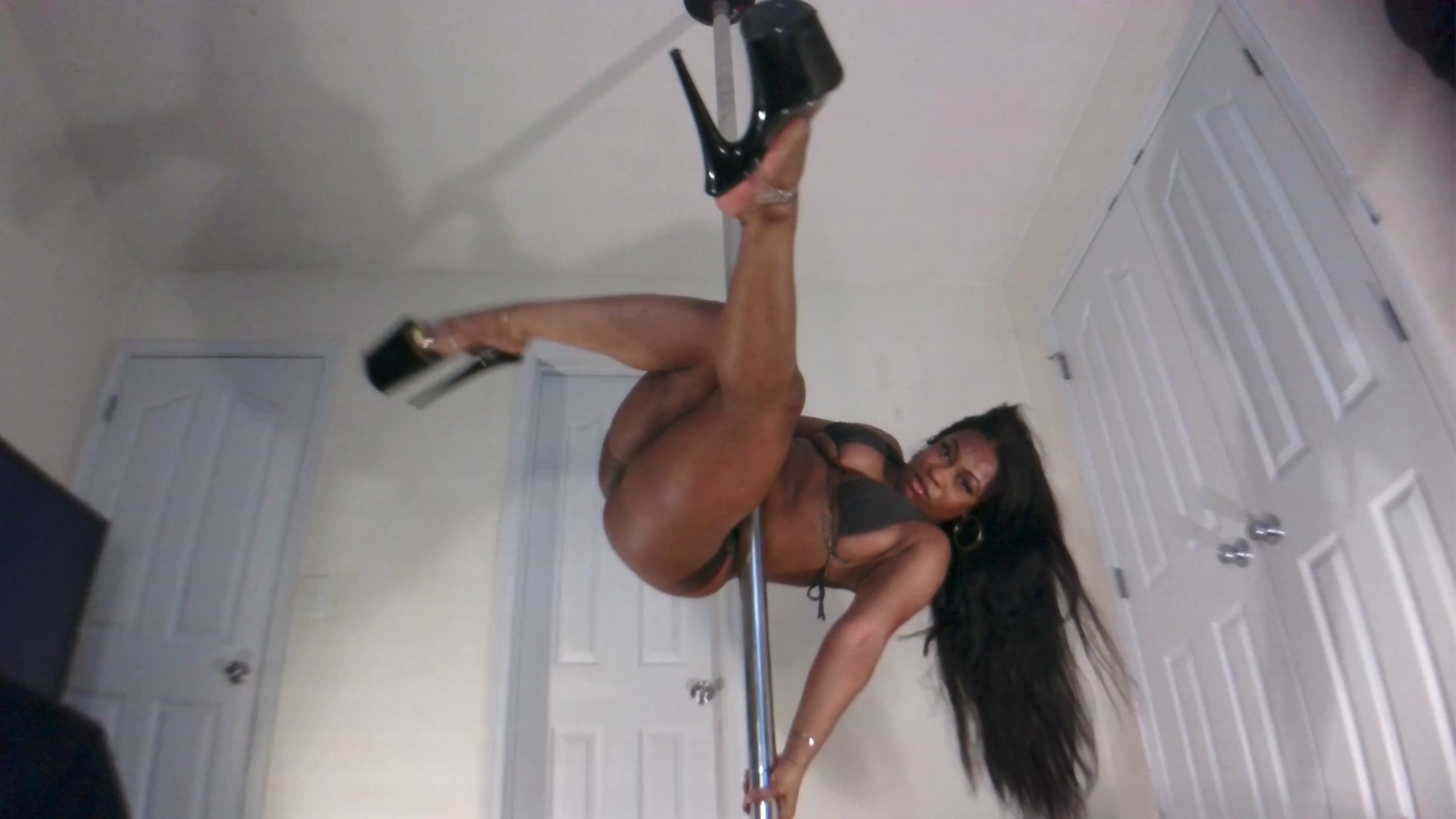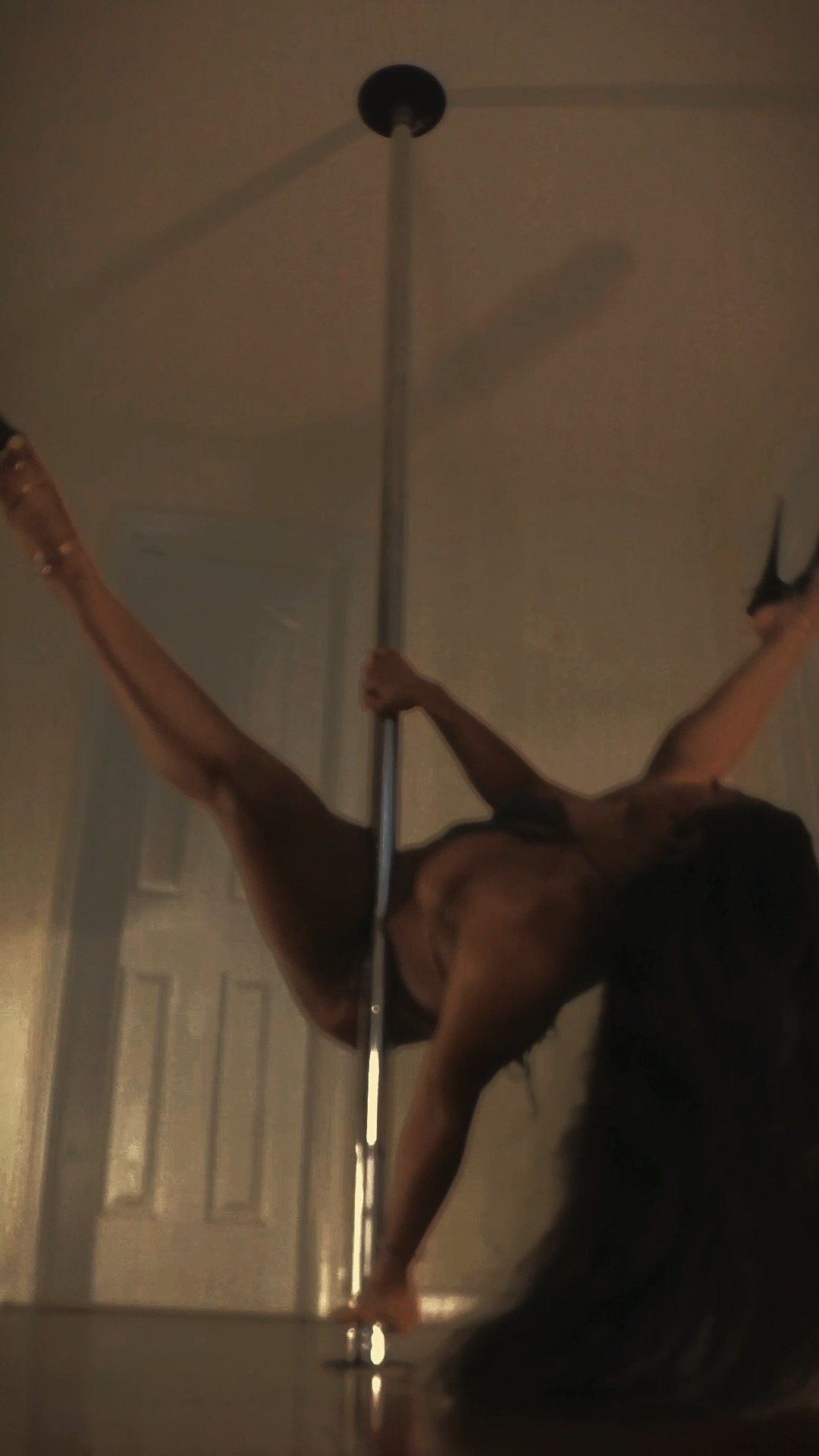Your cart is currently empty!
About Ashley S + Performance Tempel
With no formal dance or acrobatic background, Ashley is what it means to be underground and underrated (mutable gemini, aries rising). From developing a sundry of pole dance tricks and techniques methodically under the direction and study of the best “OG’s” in the game during lockdown (Carolyn Hernandez, Carmine Black, Krystal Jackson, Tameah Gemini, Onyx, Jamilla Deville & Rachel Owl) emerged the call from the ‘outside’: a demand to teach. The same way she began, she continues to be that bitch—that is—to be without a traditional pole studio as a place to learn. This, in part, is how Performance Tempel evolved from online product retailer to virtual sanctuary for artistic development. It’s how she went from only being visually adored for her body by fans, to manifesting for others the vision for their own body to become artists.


“Pole Tricks are channels for meaning and possibility. These Stunts are an artistic tool for when Psyche is channeled, verbal Phrases are lost and Physical form is available to sculpt.”
STUDY TRICKS WITH ME
Class Types
With a distinct approach to designing the learning experience and acquisition of expertise, skill development classes are labeled by type. There are tenant classes that inhabit the Performance Tempel methodology.
These tenants are: “BodySculpt”, “BodyScan”, “BodyFlesh”, “Spicy Conditioning”, and “BodyView”. These are the headings for classes which indicate the conceptual learning mode.
Collections of these tenant classes are organized under the “BodySketch” heading that signals a series.
The Performance Tempel classroom experience progresses from isolating skills in breakdowns to threading concepts together as skillsets.
Learning stages
Levels of education groups are tiered alternatively to the traditional pole leveling system. Rather than using numbers, short phrases are used to better classify the measurement of skill a learner is capable of executing. Performance Tempel’s learning stages are:
Basic Stage
In a “basic” class, learning is framed as “know-that” . These are introductions to must know functions that build foundational concept awareness, features, strength, context and the form the onset of practice experience.
Competent Stage
In a “competent” class, learning is framed as “know-how” . These are classes that expand experience with the basics. As basic knowledge is expected while cueing and instruction include situational concepts, decision making and sense of meaning
Proficient Stage
In a “proficient” class, learning is framed as “know-to” . These are classes that expand competency with intuitive response sharpening , situation recognition and have a deeper involvement with inner-being and outward expression. Cues are more complex and ask learners to coordinate physical strength with metaphysical aspects of dance.
Navigation of intricate abilities
EROTIC FUNK
Conditioning for assorted circumstances and use styles

SPECILIZATIONS
SEXUALIZED pole TRICKS
MESHING TRICKS & DANCED POLEWORK— KINAESTHETICS
OVERCOMING BARRIERS & FEAR
ACROBATIC MODULATIONS FROM LOW POLE TO AERIAL CEILING
EXECUTING TRICKS IN HEELS
STIRRING SOUL INTO STUNTS
CREATE PACED OR ROTATIONAL MOMENTUM On Static pole
It’s important that skill education directs you into understanding how to practice and not just how to achieve a skill rapidly. Ashley believes in ritualizing the sessions so you can discover your own tone, mood and groove.